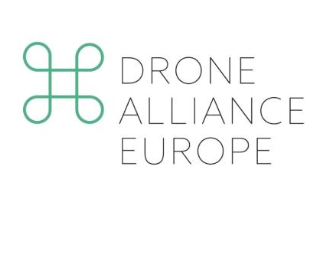 The Drone Alliance Europe (DAE) was formed earlier this year by some of Europe’s leading drone companies – and some U.S. companies who find Europe’s skies friendlier for drones than those here at home.
The Drone Alliance Europe (DAE) was formed earlier this year by some of Europe’s leading drone companies – and some U.S. companies who find Europe’s skies friendlier for drones than those here at home.
DAE was founded by Altitude Angel, Amazon Prime Air (who recently announced a new team based in Austria), Delft Aerial Robotics, ParaZero, and Unifly. The organization is a spin-off of the U.S.-based Small UAV Coalition, seeking to encourage European regulators to stay on the path of flexible, risk-based regulation.
When DRONELIFE spoke with Lucas van Oostrum, co-founder Delft Aerial Robotics (DAR) and co-founder Drone Alliance Europe last week, we asked for his insights on drone advocacy and drone regulations in Europe.
Van Oostrum says that while the DAE is a spin-off of the Small UAV Coalition in the US, the environment in Europe made it necessary to form a separate advocacy group. “Our whole lobbying system is different,” he says, but comments that the Small UAV Coalition set the example of putting together an industry alliance: ““The good thing about the Small UAV Coalition in the U.S. is that they were able to get together the major players in the industry… a lot of good work has been done by the coalition.”
The goal of the DAE is simple, says Van Oostrum. ““It’s making sure that the industry flies…we’re thinking fully autonomous systems, and in order to get there a lot of work has to be done.” The Alliance is doing the work: policy pieces recently sent to members of the European parliament show thoughtful research and a well-laid out argument for ensuring that regulations are flexible enough to encourage the drone industry.
Saying that they support the use of geo-fencing and other technology solutions to ensuring the safe integration of hobby drones into the European airspace, the Alliance points out it is to everyone’s advantage that regulation be oriented towards encouragement of industry rather than the control of recreational drones:
As a business-led coalition, it is in the specific category that our members have the largest stake. By their very nature, commercial operators will use or support the use of unmanned aerial systems professionally. There is no commercial advantage for them to use drones in way that endangers the reputation of their company or their commercial potential. The balance that Europe must find is to ensure that the small percentage of malicious or reckless operators within the ‘open’ category do not drive regulation that would be of detriment to those within the ‘specific’ category.
Public perception of drones in Europe has changed gradually over the last two years. “Consumer drones bring drones closer to people, and people start understanding the technology. It’s the same as mobile phones… with new technology people have to get used to it.” While consumers are the first group to reach, Van Oostrum says, businesses will be next to see the advantages of the drone industry, and that may bring about the big changes that the industry needs. A regulatory change like allowing BVLOS (Beyond Visual Line of Sight) flight, he points out, will most likely come when very large industries already represented in the regulatory organizations step in. “I think that you’ll start to see a very big push by the big utility companies – and that’s a good thing.”
While one of the big advantages that Europe has enjoyed over the U.S. is a regulatory system that seeks to create a unified, European framework for drones, Van Oostrum says that there is still work to be done. “It’s not there yet. It’s still fragmented… but they are moving towards having a unified regulatory framework.” Europe does recognize the need to act in order to be part of the industry, however, and that recognition has helped to bring companies together, creating a cooperative environment. “It’s a perfect spot to be for robotics.”
While Van Oostrum is optimistic about the future of drone innovation in Europe, he says that the Drone Alliance has work to do to ensure that the environment remains favorable. With new technology and regulations happening all the time, he says, a lot is about to change: “the time to act is now.”

Miriam McNabb is the Editor-in-Chief of DRONELIFE and CEO of JobForDrones, a professional drone services marketplace, and a fascinated observer of the emerging drone industry and the regulatory environment for drones. Miriam has penned over 3,000 articles focused on the commercial drone space and is an international speaker and recognized figure in the industry. Miriam has a degree from the University of Chicago and over 20 years of experience in high tech sales and marketing for new technologies.
For drone industry consulting or writing, Email Miriam.
TWITTER:@spaldingbarker
Subscribe to DroneLife here.







Leave a Reply